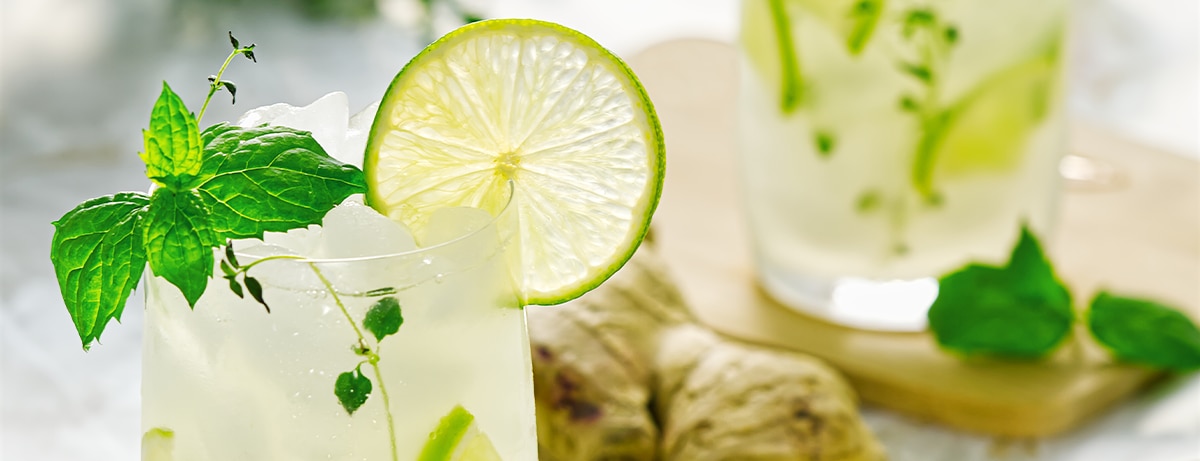15% off €25
Code:BASKET
Does eating slowly help with digestion?

If eating your food in a rush is something you do often, it might be time to slow down. Eating food quickly can lead to digestive discomforts. Here's why eating slowly is the right way to eat.
Summary
1Why eating slowly matters
The sight and smell of food triggers signals from your brain to your digestive system that it’s time to eat. This alone can start the production of...
2The side-effects of speed eating
Fail to chew properly and food will sit in your stomach for longer, which can lead to indigestion and heartburn. And if you gulp food down in haste...
3Eat mindfully to lose weight
Mindful eating means taking the time to sit down, concentrate, and use all your senses to enjoy and appreciate your meal. It can also help you lose...
Guilty of gobbling down toast while dashing to work, lunching on the hop, then demolishing a TV dinner? It’s time to slow down
Good digestion means you don’t experience unpleasant symptoms after eating, such as heartburn, plus it allows our body to absorb all the nutrients we need from food. And it starts as soon as we sit down to eat.
Why eating slowly matters
The sight and smell of food triggers signals from your brain to your digestive system that it’s time to eat. This alone can start the production of saliva – hence the expression mouth-watering – which contains enzymes to start breaking down our food.1
Chewing properly so you eat slowly allows us to savour our food and enjoy it. It also means the food is partially broken down before it reaches our stomach. Chewing continues to boost saliva production, as well as trigger enzyme release further down the digestive system.2
The side-effects of speed eating
Fail to chew properly and food will sit in your stomach for longer, which can lead to indigestion and heartburn.3 And if you gulp food down in haste or while chatting, swallowed air may mean bloating and wind.4
The hormones that signal to the brain that some food has made its way to the small intestine can take 20 minutes to kick in too, so it’s easy to overeat and end up with digestive problems, like feeling uncomfortably full later on.5
Eat mindfully to lose weight
Mindful eating means taking the time to sit down, concentrate, and use all your senses to enjoy and appreciate your meal. It can also help you lose weight. In 2017, Japanese researchers monitored 60,000 subjects and found those who ate slowly were 42% less likely to be obese than their fast-eating counterparts.6
Chewing your food for longer, putting cutlery down between mouthfuls or using chopsticks to slow you down, and paying attention to what you’re eating, aids digestion and promotes weight loss because you become more receptive to satiety cues (feelings of fullness).7
One small study published in the journal Appetite in 2011 found people who had to ‘de-shell’ pistachio nuts ate 41% fewer calories compared with those given shelled nuts.8 The two groups reported similar levels of fullness and satisfaction, so slow down to get more out of your food without actually eating more.
- National Institute of Diabetes and Digestive and Kidney Diseases. Symptoms Your digestive system and how it works. Available from: https://www.niddk.nih.gov/health-information/digestive-diseases/digestive-system-how-it-works
- National Institute of Diabetes and Digestive and Kidney Diseases. Symptoms Your digestive system and how it works. Available from: https://www.niddk.nih.gov/health-information/digestive-diseases/digestive-system-how-it-works
- Valitova ER, et al. The effect of the speed of eating on acid reflux and symptoms of patients with gastroesophageal reflux disease. Available from: https://www.ncbi.nlm.nih.gov/m/pubmed/24557959/
- National Institute of Diabetes and Digestive and Kidney Diseases. Symptoms Your digestive system and how it works. Available from: https://www.niddk.nih.gov/health-information/digestive-diseases/digestive-system-how-it-works
- Breton J, et al. Gut Commensal E. coli Proteins Activate Host Satiety Pathways following Nutrient-Induced Bacterial Growth. Available from: http://www.cell.com/cell-metabolism/fulltext/S1550-4131(15)00566-5
- Hurst Y, Fukada H. Effects of changes in eating speed on obesity in patients with diabetes: a secondary analysis of longitudinal health check-up data. Available from: http://bmjopen.bmj.com/content/8/1/e019589
- British Nutrition Foundation. Understanding satiety: feeling full after a meal. Page 4. Available from: https://www.nutrition.org.uk/healthyliving/fuller/understanding-satiety-feeling-full-after-a-meal.html?limit=1&start=3
- Honselman CS, et al. In-shell pistachio nuts reduce caloric intake compared to shelled nuts. Available at https://www.ncbi.nlm.nih.gov/pubmed/21645565
Advice is for information only and should not replace medical care. Please check with your GP before trying any remedies.



